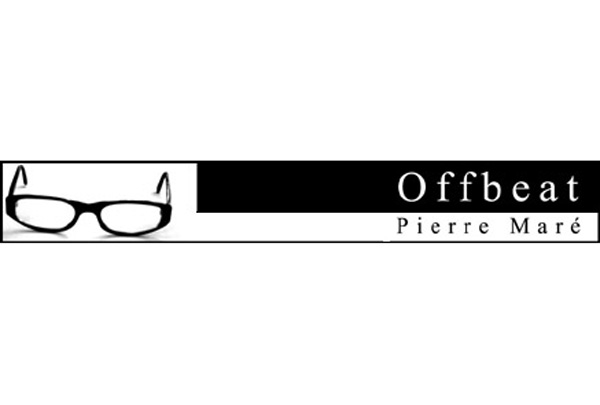
“Humans being Unattractive” – Extreme verbosity in Titles of Excellence

By Natasja Beyleveld, Managing Director of NaMedia.
I recently read an invite which made me secretly pull a face like the old vampire dude in an 80’s movie, confronted with sunlight and whisper-shouting ‘noooooooo!’.
The invitation, speaking for one discipline in the universe, invited the kings of the universe and therefore spoke in Title. The invitation read along the lines of “you are cordially invited to attend the ________ with the newly elected President Dr XYZ, accompanied by the CEO – Mr. ABC”, and then the cherry on top: “President XYZ has consented to Grace the meeting as chief Guest Speaker”.
It feels like that moment you spot something dodgy in your half-eaten toasted sandwich thinking “I’ve been violated!” I just developed a brief allergic reaction to the invitation’s approach and started imagining an audience waiting for the consented one, but swiftly stopped day-dreaming the moment I visualised 90% of the audience taking selfies with the consented one post-event.
At some point in your life you’ve also fallen for the prey, like posing next to Elvis Presley in a wax museum looking all ‘fly’. Regardless, we have to ‘manage’ a system that continues to bully both speakers, choirs, and audiences into ‘what makes things important, or relevant’. It’s the hangover patriarchy. You can still taste ‘privilege’ and ‘entitlement’ that show others what to look for, or how to ‘act’.
There is no shame in having at least some degree of pride in your title, in order to help people to better understand what you do and how far you’ve risen. You get really cool people that are even better in real life regardless of the titles they ‘own’. But if we fall into the trap of isolating the titles by ‘gaining consent to brace us with their presence’ (if it’s not Nelson Mandela in his last years), we’re putting people (and not substance) on the pedestal. It becomes a people problem rather than a solution platform. We’ve learned many times over and over again, that these ‘people problems’ take much more effort to get rid of, in comparison to solution oriented platforms like peace negotiations, for instance.
We’re drawn to context more than just object. What is the context that has given this product, presenter, country, or event, relevance? Command existed since the beginning. God gave a chain of command. It’s an order that runs with alignment. It’s one trajectory. It’s packing on the badges of responsibility and keeping checks and balances. In this example you’re still committed to a shared purpose, as opposed to secluded in your assignment within this alignment. If titles become the assignment, and not part of the alignment – then we almost always loose the plot.
It’s easier to objectify a person if the pedestals they preach from become the limelight. It shines light on the object and not on the context. It’s also not sustainable. What would happen if the event, the cause, the teaching, the ‘consent’ is greater than yourself – and is aimed at the beneficiaries?
What if the message spoke to a person and not to the universe? There are definitely people that managed to do so and constantly had to remind others not to place them onto a pedestal. Nelson Mandela was no angel, but he managed to awake and unlock the power within individuals – be it to reconcile, to forgive, to unite, and to dream bigger because suddenly there was more context, more room for growth and change, in short the powerful promise of a collective future. It’s easy to do what is popular or to become what is popular. Stirring the hearts of powerful men and women can definitely not be ‘a hit’ for too long (unless it’s Gangnam Style).
If we’re one discipline (artists, lawmakers, economists, scientists, psychologists or whatever you’re invested into), then we can still speak a universal language without speaking ‘into the universe’. We’re still speaking to people, and to the hearts of people. The excellent individuals in my country, tribe, company or community may be unknown to yours, or my doctor and his degree can not cure people nor animals, but be a scientific pearl of wisdom, nevertheless. If I however, told you that you can come to an event where Dr President CEO has given consent to grace you with his/her presence, you’re likely heading to the nearest exit, I know.
The stereotypical reinforcement of the message that ‘powerful leadership’ (or their titles) become the basis of what makes an event or conversation ‘important’ or relevant, reinforces the very same stereotype that creative digital communication experts are ‘banning’ from their style.
There is context to draw from ‘word on street’, in that people share how someone else made them feel (Dale Carnegie) before ranting about the fact that the person is a Dr or President or Minister or Lawyer. Carnegie believes that the one thing those people got right was making the other person feel important, and sincerely so. Then, all the other ‘fancy stuff’ becomes compliments as a matter of fact, rather than a matter of raison d’etre. Perhaps we need to put a finger into the power socket before sending out invitations with fancy titles and themes and recharge our audience before somehow burdening them with ‘a golden pumpkin’ but no carriage.
Love
Natasja













































